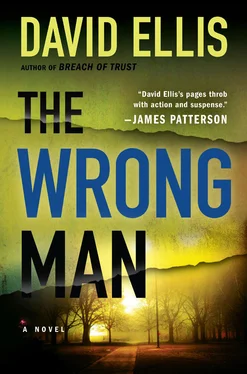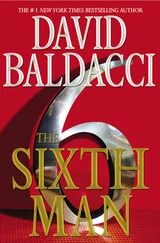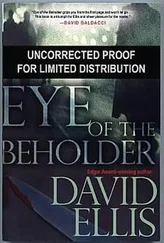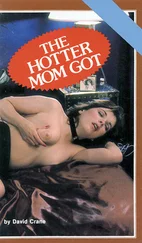David Ellis - The Wrong Man
Здесь есть возможность читать онлайн «David Ellis - The Wrong Man» весь текст электронной книги совершенно бесплатно (целиком полную версию без сокращений). В некоторых случаях можно слушать аудио, скачать через торрент в формате fb2 и присутствует краткое содержание. Жанр: Триллер, на английском языке. Описание произведения, (предисловие) а так же отзывы посетителей доступны на портале библиотеки ЛибКат.
- Название:The Wrong Man
- Автор:
- Жанр:
- Год:неизвестен
- ISBN:нет данных
- Рейтинг книги:3 / 5. Голосов: 1
-
Избранное:Добавить в избранное
- Отзывы:
-
Ваша оценка:
- 60
- 1
- 2
- 3
- 4
- 5
The Wrong Man: краткое содержание, описание и аннотация
Предлагаем к чтению аннотацию, описание, краткое содержание или предисловие (зависит от того, что написал сам автор книги «The Wrong Man»). Если вы не нашли необходимую информацию о книге — напишите в комментариях, мы постараемся отыскать её.
The Wrong Man — читать онлайн бесплатно полную книгу (весь текст) целиком
Ниже представлен текст книги, разбитый по страницам. Система сохранения места последней прочитанной страницы, позволяет с удобством читать онлайн бесплатно книгу «The Wrong Man», без необходимости каждый раз заново искать на чём Вы остановились. Поставьте закладку, и сможете в любой момент перейти на страницу, на которой закончили чтение.
Интервал:
Закладка:
It was the only story Ramini could tell the boss. The truth was out of the question. He knew Paulie would greet it with skepticism-Kolarich was just some lawyer, not a trained killer who could take out two attackers-but in the end, he figured Paulie would give Ramini the benefit of the doubt. Ramini had earned that respect. But he was running out of rope, he knew.
“For now, we wait,” Donnie said. “But two things, Petey. Okay?”
“Okay, two things.”
“One: If you think this lawyer’s getting close to us, no more waiting. If you gotta shoot him in fucking court, you do it. Right?”
“Right. And second?”
“Second,” said Donnie. “When this thing’s over, the trial and whatnot, and we’re all happy? Well, Paulie still ain’t so happy, see what I’m sayin’? Sal and Augie were good earners. Nobody kills two of our boys and walks away. Can’t have that. Right?”
Donnie finished up the candy bar and crunched the wrapper in his hand. The parishioners were starting to return to the pews in front of them, so the conversation would end.
Donnie leaned in to Ramini again. “What happens when the trial’s over, Pete?”
Ramini sighed. “Kolarich dies,” he said.
“And who dies if he don’t?”
Ramini nodded. “I do,” he said.
“You and everyone you love, Pete. You know the rules.” Donnie patted Ramini on the knee and walked out of the church.
64
Judge Nash was yelling at Wendy Kotowski and me before we even made it to the lectern to argue the pretrial motions. He thought the volume of our submissions was too great. He was right, but it wasn’t that unusual an amount, thirty-one motions in all. I was hoping that he would direct his wrath more at the prosecution, which technically had filed more than me, but that was wishful thinking.
A few years ago, Judge Nash put a hard limit on the number of pretrial submissions by each side. But the appellate court slapped him down. Criminal cases invoke the Bill of Rights, constitutional protections against the state unfairly throwing people in prison, and when a defendant’s liberty is at stake, arbitrarily limiting the amount of arguments he can make was viewed as a nonstarter.
But that didn’t mean Judge Nash had to like it. His official limitation became an unspoken one, and when lawyers exceeded it, they heard about it.
The judge began to bark out rulings. Without oral argument, only the papers we submitted, he was rattling off rulings on evidentiary objections and testimony limitations. The prosecution couldn’t use their fancy computers during jury selection to look up the criminal histories of potential jurors unless they provided those same resources to the defense. (Score one for me.) The defense couldn’t raise Kathy Rubinkowski’s criminal record-which I had no intention of doing, given that her crime was criminal trespass, a PETA protest of an animal testing lab when she was a freshman in college. The prosecution tried to limit what I could say to the potential jurors during voir dire, because Wendy Kotowski knew me well, but the judge shot her down and said he could decide objections as they came.
It went like that in bullet fashion. Twenty-five of our thirty-one motions were decided in the space of five minutes, as the judge read through his rulings.
I scribbled down his rulings as best I could. My head was foggy. The hotel bed I was sleeping on these days wasn’t to my liking, and I woke up this morning with a stiff neck and a headache, which was nice because it gave my bum left knee some company.
The judge allowed oral argument on some of the big issues. He gave me a full hearing on our motion to exclude Tom Stoller’s so-called confession. My principal argument was that Tom didn’t knowingly waive his right to counsel. In the videotape, the coppers asked him whether he understood his rights, and he nodded vaguely. He never spoke aloud. I argued that the consent should have been verbal or at least unequivocal. Tom Stoller had nervous twitches, as one could clearly see from the videotape and as my expert would testify, and a nod of the head was about as rare for Tom as taking a breath.
The judge glanced over at Tom, sitting in the detainee holding area to his left, during this argument. Tom incessantly licked his lips and wiggled his fingers to no end. His head would move a decent amount, but as he sat here today, more or less unconcerned with what was taking place, his head was relatively still. It was when he was nervous that he bobbed his head more.
We went back and forth for a long time on that. I knew my opponent well, and I could see that Wendy Kotowski was nervous. She thought she was vulnerable on this one. I hadn’t expected to win this argument, but as I listened to the give-and-take between the judge and Wendy, I suddenly gained hope.
But then the judge shattered my illusion in the space of ten seconds. “I will allow the videotape but give the defense full leeway on this one. The defense is free to revisit this issue at a later time.”
“Judge, we had requested an evidentiary hearing,” I reminded him. I wanted the court, before trial, to hear from the police and maybe even Tom on this topic. I’d spent much of yesterday-Sunday-preparing for a hearing.
“We’ll proceed as I indicated,” said the judge.
I hated it when judges deferred rulings. He was going to let the evidence in and then decide afterward, after hearing all of the evidence, whether Tom had consented to questioning. By then, the jury would have heard Tom’s statements. The judge would then have the choice of granting our motion, which would require him either to instruct the jury to disregard the evidence-yeah, sure-or to erase the trial and start over at square one with a new jury. Or he could deny my motion and move the case to verdict and get this case off his docket. It didn’t take Nostradamus to predict which option he would prefer.
Most judges would have granted me an evidentiary hearing. But the old saying around the courthouse- Judge Nash ain’t most judges — rang truer than ever now. If I’d had this case from the start, I would have requested a substitution. Every litigant gets the right to switch judges at least once, as long as it happens before a substantive ruling takes place. But I was long past that by the time I jumped into this case.
My phone buzzed. We were supposed to turn off phones, but I kept mine on vibrate. Wendy was in the middle of something, so I covertly removed the phone from my pocket and read a text message. It was from Tori:
Story online. Bruce McCabe found dead this morning. Apparent suicide, hanging in his garage. No further details.
McCabe was dead? I wondered what it meant, other than further confirmation that I was onto something here. But he was going to be one of the surprise witnesses I might call, if the judge would ever allow it, and now he was unavailable to me. Still, this could be an opportunity for me as well. Dead witnesses can’t contradict you. I could point the finger at him without any denial in reply. A suicide, in fact-if it really was a suicide-could suggest that he was doing a thing or two he shouldn’t be doing and felt remorse. It got my juices flowing, but I had to temper it with a reminder that Judge Nash had not, to date, heard a single thing about Randall Manning or Global Harvest or Bruce McCabe or any of this other stuff. And he typically welcomed surprise witnesses about as much as he welcomed hemorrhoids.
Wow. Okay. I shook my head. I had to refocus on what was happening in this courtroom.
The judge reserved Wendy’s biggest argument for last. She went into a long recitation of how Tom Stoller’s admittedly distinguished military career had no relevance to this action. It would serve only to pander to the jury’s sympathy.
Читать дальшеИнтервал:
Закладка:
Похожие книги на «The Wrong Man»
Представляем Вашему вниманию похожие книги на «The Wrong Man» списком для выбора. Мы отобрали схожую по названию и смыслу литературу в надежде предоставить читателям больше вариантов отыскать новые, интересные, ещё непрочитанные произведения.
Обсуждение, отзывы о книге «The Wrong Man» и просто собственные мнения читателей. Оставьте ваши комментарии, напишите, что Вы думаете о произведении, его смысле или главных героях. Укажите что конкретно понравилось, а что нет, и почему Вы так считаете.












